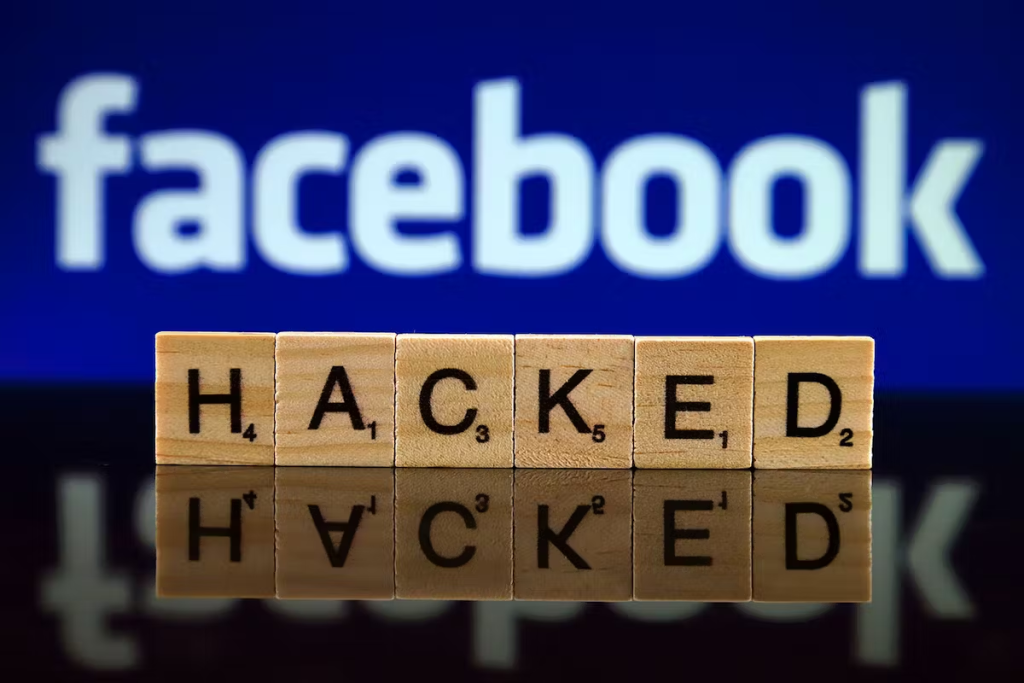Protect Your Facebook Account and Facebook page always. Facebook is the most popular social media in the world, with 2.96 billion monthly active users as of 2023. Facebook has 2 billion daily active users as of 2023. Facebook’s average revenue per user (ARPU) is $10.86. With so many users, it’s no surprise that hackers are always looking for ways to gain access to Facebook accounts.

Facebook Team has invested in top-notch security infrastructure to protect users and User Data. The Team works around the clock to detect and prevent fraud, safeguard data and ensure Facebook systems are secure.
However, While Facebook invests in finding, fixing, and preventing security issues, there are measures that Facebook Users can take to protect their individual accounts and Pages.
Read: Lawmakers seem confused about what Facebook does — and how to fix it
In this post, we will discuss some simple steps you can take to prevent your Facebook account or Page from being hacked. With these security tips, you will be able to recognize suspicious requests and activity and keep your account and your Facebook Page safe. And since your business Page is connected to your personal Facebook account, it’s important to keep both secure:
1. Protect your Facebook account with a strong and unique password
Password guessing is one of the most popular methods used by hackers to access Facebook accounts. This is what we call a brute force attack. It can often take the form of an attacker making educated guesses of your password.
Use a secure password that is difficult to guess and that is strong and unique. A good password should have a minimum of 12 characters and be made up of a combination of letters, numbers, and symbols. Avoid including your name, phone number, email address, or common words. Don’t reuse your Facebook password on other services online, and never share your password with others.

2. Enable two-factor authentication
To further secure your account, enable two-factor authentication, both for yourself and as a requirement for other members of your business. Once you’ve set up this extra layer of protection, you will be asked to enter a code or confirm your login attempt each time someone tries accessing your Facebook account from a computer or mobile device Facebook doesn’t recognize.
To enable two-factor authentication, go to Settings > Security and Login > Two-Factor Authentication.
You are also encouraged to sign up to get alerts when someone attempts to log in from a device that Facebook doesn’t recognize.
3. Keep your device and software up to date
Making sure your device and software are up to date is very important. Hackers frequently take advantage of security loopholes in out-of-date software to access devices and accounts. Make sure to periodically update the operating system, web browser, and antivirus software on your device.
4. Be cautious of phishing scams
Phishing is among the most common password-stealing techniques currently in use today and is often used for other types of cyber-attacks. Rooted in social engineering tactics, its success is predicated on being able to deceive a victim with seemingly legitimate information while acting with malicious intent.

Hackers frequently use phishing scams to access Facebook accounts and pages. Phishing schemes often invite you to click a link or enter your login information in an email or message that looks to be from Facebook. Always be on the lookout for these kinds of messages and always use the official Facebook website to log in.
Links may be looking seductive or lottery, to lure you into clicking it. Avoid clicking links that you have not verified the source.
5. Limit access to your Facebook account
You should only allow people you trust access to your Facebook account. Never accept a friend request from someone you don’t know, and use caution when disclosing your login information. Review your Facebook privacy settings and make sure you are only sharing your information with individuals you trust. This is also a smart idea.
Scammers may create fake accounts in an attempt to friend and manipulate people. Accepting requests from scammers could lead to spam being posted on your timeline and shared with your friends. Scammers may also tag you in posts and send malicious messages to you and your contacts.
6. Review Page roles and permissions
Familiarize yourself with the different Page roles that exist and the permissions they have. Don’t grant Business Manager Permission to Pages you don’t know. You can report suspicious Business Manager Permission requests to Facebook.
Regularly review who has admin access to your Page in settings, and when you add your Page to a Business Manager, please take a moment to understand the permissions you allow.
7. Monitor suspicious links and malicious software
Keep an eye out for links you don’t recognize, especially if they’re coming from people you don’t know or trust. Be careful not to click on suspicious links, open suspicious files, or install malicious apps or browser extensions—even if they appear to come from a friend or a company you know.
This includes links on Facebook, in private messages, and in emails. Keep in mind that Facebook will never ask you for your password in an email. You can always confirm whether an email claiming to be from Facebook is authentic by reviewing recent emails Facebook has sent in the Security and Login Settings.
If you see a post or message that tries to trick you into sharing personal information, please report it.
8. Set up trusted contacts
You should also consider having more than one admin for your Page so that in case you ever lose access to your Page, someone you trust can help keep the Page up and running, and get you back in.
This helps you regain access to your account, and then your Page, in case you are ever locked out, you can enable your friends to be your trusted contacts. They’ll be able to send you a recovery code with a URL to help you get back into your account.
Recent Hacking Activities
More than 5,000 Kenyan Facebook users lost millions of shillings in a social hacking scam that lasted for a year, a local cyber security firm revealed in 2014. The firm, Serianu, said it has unmasked a Kenyan who broke into the personal accounts of Facebook users in Nairobi, Mombasa, and Eldoret and used the access to solicit funds from thousands of people linked to the breached accounts.
The attack was a type of social hack known as a phishing scam that tricks users into providing a hacker with access rather than relying on technical skills to break into their accounts.
In 2021, a Facebook user in a low-level hacking forum published the phone numbers and personal data of hundreds of millions of Facebook users for free online.
The exposed data included the personal information of over 533 million Facebook users from 106 countries, including over 32 million records on users in the US, 11 million on users in the UK, and 6 million on users in India. It includes their phone numbers, Facebook IDs, full names, locations, birthdates, bios, and – in some cases – email addresses.
In 2018, Facebook’s stock closed down 3% following reports that hackers gained access to the personal data of 50 million of its users. Millions of Cash have been lost in scamming crime and it is therefore important for every user to gear up his/her security.

Read: Microsoft’s Inspiring Journey To Office And Beyond
Be Vigilant
In conclusion, there are a few easy precautions you may take to guard against Facebook hacks. You can help safeguard your personal information and keep your account secure by choosing a strong and unique password, turning on two-factor authentication, keeping your hardware and software up to date, being wary of phishing schemes, and limiting access to your Facebook account.
If you think your personal account has been compromised in any way, please visit facebook.com/hacked to get help, and visit our Help Center for help with your Page security. You can also explore Privacy Basics for more ways to increase your account security and to learn about the protections we have in place.



[…] Also Read: How To Protect Your Facebook Account From Hackers […]
[…] Read Also: How To Protect Your Facebook Account From Hackers […]